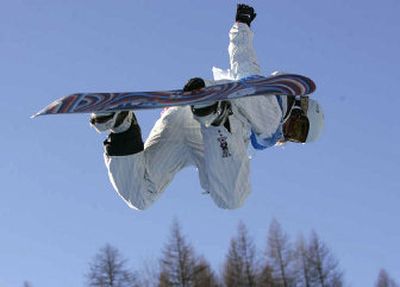Olympian challenge

Hannah Teter wears plaid.
That is what NBC Agency executives learned last year when they tried to cloak the star snowboarder and her teammates in identical uniforms for a music video promoting the 2006 Winter Olympics in Turin.
“The first thing I said when I saw the (daily footage) come back is, ‘Why are they wearing their own clothes?’ ” said Vince Manze, president and creative director of NBC Universal’s in-house ad agency.
Plaid is what Teter is known for, he was told. Her fans expect it. And if NBC wanted to capture the “Millennial” generation in its upcoming Olympic broadcasts, they would not portray Teter and her teammates as packaged for prime time.
Instead, there would be music videos, and Web sites letting fans know that if Teter were stranded on an iceberg she would want to have “a pipe dragon, a 52 Feelgood, and a Tarzan outfit!” — the machine used to groom snowboard courses, a kind of snowboard and an article of clothing.
Building on previous efforts around the Salt Lake City and Athens games, officials with NBC, the exclusive U.S. broadcaster for the games through 2012, and the International Olympic Committee say this year they have unleashed their most sophisticated campaign to date to make the games more appealing to teen-agers and twenty-somethings.
Driving the effort is the memory of the 2000 Summer Games in Sydney, when declining interest among younger viewers was first noticed. Sydney was “a wake-up call,” Manze said. Ratings data, compiled by Nielsen Media Research, showed that 51 percent fewer males between the ages of 18 and 34 tuned into the Sydney Games, compared with the games in Atlanta four years earlier.
Surveys further revealed that the 34-and-under set saw the Olympics as “a nice thing,” but not something they felt a connection to, Manze said. By contrast, the perception of the games among those older than 35 was shaped in earlier days when the Olympics were a stand-in for the Cold War. “It was more than a sporting event,” Manze said. “It was a way of life against another way of life.”
Fortunately for Olympics boosters, IOC officials had already realized that “we have to deliver a product that is obviously appealing” to young people, said Timo Lumme, IOC’s director of television and marketing services.
It had added snowboarding as a medal discipline in 1998. More “extreme sports” followed, including snowboard cross races, an event in which competitors cut across another’s path that is making its Olympic debut in Turin.